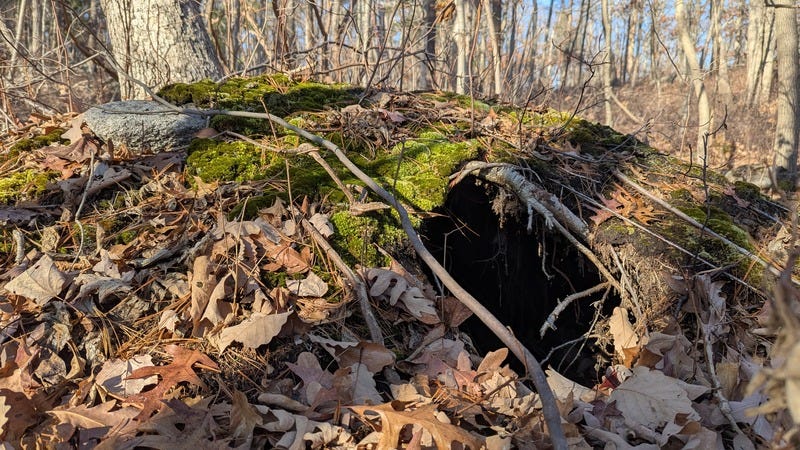🤔 Why is it so uncomfortable to explain non-binary?
More ways to deal with "so, are they a girl or a boy?"
My post about how to introduce trans and non-binary people using your relationship with them to avoid incorrect gendered language resonates with many of you — I am so glad you find the idea helpful.
But I was thinking about why it is so hard to describe trans and non-binary people sometimes, and particularly why it is hard to describe non-binary family members.
Part of it is our language. There's no traditional gender neutral word for “niece” or “nephew” (but we have great modern alternatives like “sibkid”).
But I think another big part of the problem is it's hard to describe oneself or others as non-binary in our society. It's uncomfortable. In some communities it may be unsafe.
I interact mostly with conservatives in YouTube comments, and they make it clear any time I mention non-binary that they consider these thoughts to be a dangerous mental illness.
Let me be clear that I and many other people believe being non-binary is completely reasonable, not hurting anyone, part of a long history of humans not conforming to binary colonial gender roles, and a good way to be.
But if you suspect someone’s reaction might be bad, you may be less inclined to come out to them as non-binary.
Coming out is scary. And it it is coming out, over and over again, to use and insist on gender-neutral language for yourself or a family member. This is particularly difficult for non-binary trans people who feel most affirmed by gender-neutral language.
Here's an idea about gendered language to consider: if you find it difficult to use gender-neutral language for someone in your life, have you considered asking them if it’s okay if you try to use the other binary gendered language?
What I mean is, if you keep saying “she” for someone when they have asked you to use “they,” would “he” be better?
I know several people who use “they” but don’t mind “he,” including myself.
I’ve heard from multiple parents that it’s challenging to describe their non-binary child, especially when strangers ask, “So, are they a boy or a girl?” Yes, even for adult children.
I’d recommend considering honestly whether it’s comfortable to say, “actually, they’re non-binary, not really a boy or a girl,” and if that is not comfortable (or, dangerous in your community), pick the least harmful binary alternative. Maybe that’s “daughter” or “son” and maybe it matches their sex assigned at birth or maybe it’s the opposite.
It can feel hurtful to hear yourself described as the same wrong gender, not just once or twice, but daily for decades. For some non-binary people, hearing yourself described as a different gender than your sex assigned at birth is not as bad. At least it’s different. But of course, everyone’s experiences vary a lot.
But maybe using any binary language at all is hurtful to the kid. That’s fair. I have two other ideas how to respond to “is it a boy or girl”:
Pull out your phone and say, “let me show you a photo of them doing something cool!”
Pretend they asked a different question, like, “what is their job or interests?” Just respond to this different question.
“Is your kid a boy or girl?”
“Alex just got a new job that’s been really good, and is planning to come visit us next month which we’re excited about.”
If a stranger persists in asking about the gender after this, well, they’re being a little weird, but then you might need to either pick the least harmful binary gender or explain what non-binary is. Or, keep changing the subject.
I have a lot of empathy for how hard it is to describe someone as non-binary in a conversation, because I’ve faced that struggle myself for several years. It’s genuinely uncomfortable to bring up such topics if you don’t know how the other person is going to react.
A lot of people feel uncomfortable when they don’t know the binary gender of the person you are talking about. This is because they have been trained to use gender stereotypes to learn about this person, and if they can’t use the stereotypes, their mind has this buzzy, incomplete sensation.
It’s actually possible that some people will be more comfortable knowing a person is non-binary rather than having no sense of their gender at all. I’ve seen this myself, and it’s helped me become a bit more comfortable about saying, “actually, I’m non-binary,” in some situations where I feel safe.
I hope these ideas help inspire you to feel more comfortable using respectful language to describe your loved ones while staying safe.
I’m so honored to be featured by
in the December Readers Select in , alongside some amazing writers in the LGBTQ+ community. Thank you very much, Robin and !Please check out these great reads on Qstack Readers Select:
We are gearing up for the winter holidays here in the US. It’s snowing outside right now - very beautiful. For many of us, this is a season of visiting family and being misgendered. Stay strong — this most misgender-y time of the year will end soon, and the days are also getting longer. Check out my tips for surviving the holidays as a trans person:
Thanks so much for reading! Let me know what you think in the comments.
Take care,
Rey












First, it hit me hard when I read “And it is coming out, over and over again….” I hear you. As a het/cis ally, I need to see this kind of truth from time to time; it’s not something I have to deal with, and you deal with it all the time.
I chuckled at some of your suggests for how to answer the question “boy or girl?” I’d be tempted to say, “Wow. Interesting question. Why do you ask?”
I appreciate the creative thought you put into trouble-shooting this sticky wicket. I wonder when the day will come that we've decolonized gender to a good enough extent so that people no longer feel threatened by ambiguity and this is no longer an issue. Sadly, that day still seems quite a ways off, so the reality we're working with does seem to call for us to find the sweet spot -- or maybe the least sour spot -- between safety and respect. Thanks for trying to help locate that spot.